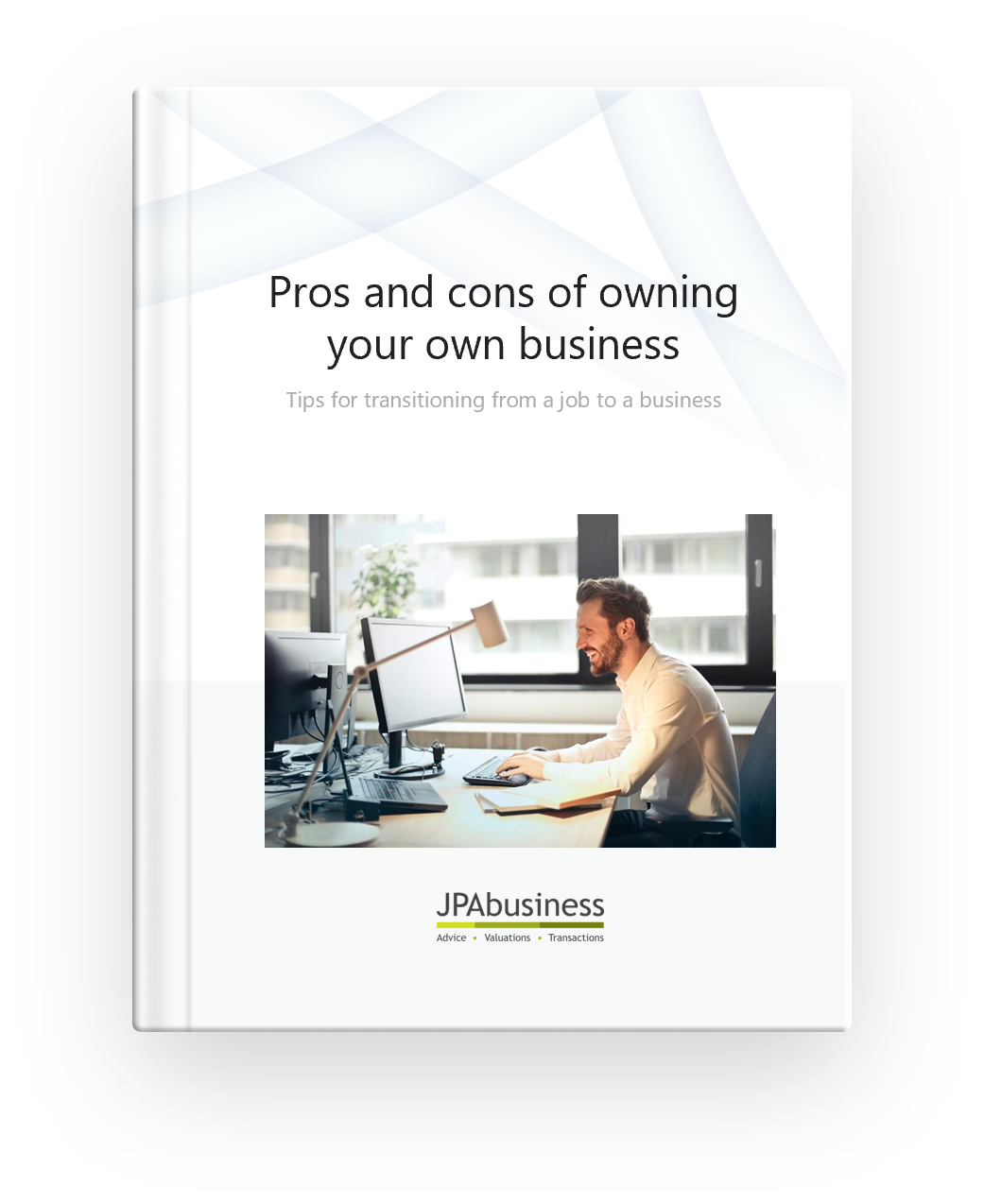
I started JPAbusiness about 17 years ago, after spending 10 years in the employed workforce.
I was strongly motivated to create something of my own and I had clear goals of what I wanted to achieve. However, it certainly wasn’t plain sailing, especially at the beginning.
The following are five things I felt in the first six to 12 months of starting JPAbusiness. I’m sharing them to illustrate that even if you are ‘the right fit’ for business ownership, you shouldn’t expect it to be easy.
1. Alone
I felt really alone. I was embarking on a course to develop something and I felt it was all up to me to deliver and make it happen.
At the time I had just come out of a corporate environment where I had managed business units with 800-plus staff. In my own business I had myself and my business partner, my wife.
It was a very different, and quite isolating, feeling.
2. Confronted
I felt confronted by the challenge. In the corporate environment I had staff and systems to do almost everything I needed.
If I needed some research done, a supplier called, a negotiation on a price, some marketing done, or an employment contract written, I had someone to do each of those things. I could tap into that network.
If I needed to measure how the business was performing, we had reports for that – they were already set up.
If I needed to check the direction to see if I was going the right way, we had a business plan and a strategic plan to follow.
We had a framework, a business culture, that was all created by others and we operated within it. So, in some respects, it was reasonably easy. There were rules to follow.
I had come from an environment that was already created and found myself in a situation where I had to create everything myself. I thought ‘where do I start on this elephant?’ (As an aside, I focused first on customers because I was thinking about my back pocket – without them I didn’t have anything!)
3. Educated
I soon found that being in business was the ultimate learning experience.
For the first three or four years, I felt the power of learning because suddenly, no matter how experienced I was in an employed environment, I was learning to do things I hadn’t previously had access to, even when I had been running quite large business units.
I know it sounds like a cliché, but having to do all the things I previously had staff to do was the ultimate learning experience, and I was certainly motivated to learn.
We’ve talked in previous ebooks about providing professional development opportunities for staff and it’s very important to ensure there is governance, structure and process to ensure that happens, but I can tell you now there is nothing like learning on the job when you’re the boss.
Developing your skills becomes even more important when you’re taking all the risk and it’s up to you whether the business happens or not – there’s nowhere to hide!
When you choose to go into business only the successful people will let that learning experience happen.
4. Challenged
Business ownership really tests your fortitude and makes you question everything:
- Do I believe in the value proposition I’m trying to create here, or is it all too hard?
- Can I actually do something that hasn’t been done before or, if it has, can I do it better than the other players in this market?
- What’s going to get me out of bed every morning to make sure I do that?
I've said before that successful business owners are usually those that wake up in the morning with their ‘engine running’ – they’re internally motivated, driven and resilient.
You can debate whether drive and self-motivation are genetic traits or learned skills, but regardless of the answer, I believe there is a strong correlation between that internal motivation and success in business.
In business, just as in life, you can get highs and lows within an hour every day and you need those traits to ride them out.
Now you also get these challenges thrown at you in an employed environment, but in that situation you have a safety net. Yes, redundancies happen, yes GFCs happen, but providing you’re doing your job reasonably well, you can operate within a fairly predictable environment.
When you’re starting your own business – for the first few years – the only things you can predict are that the sun will come up and go down each day.
In order to manage the depressing times and even the highs, you need to create your own structure, or framework, that will give a consistent approach to building your business, despite the bumps, and also ensure you have a developed support base.
Fortitude and self-motivation will help you achieve that.
5. Confident
Despite some of the negative emotions I felt starting out in business, it was critical that I had confidence that I ‘knew my stuff’. Equally important was having the confidence to acknowledge what I didn’t know.
When you’re starting out in business there is no room for arrogance – acknowledging what you’re not good at will help you build a good support network sooner rather than later.
Accept your limitations, do what you do well, and seek help with the rest.
Pretend you can do it all yourself and you will set yourself up for a fall.
Whether you're considering buying a business or starting your own, the JPAbusiness team can help with advice and resources. Contact us today for a confidential, obligation-free discussion.

